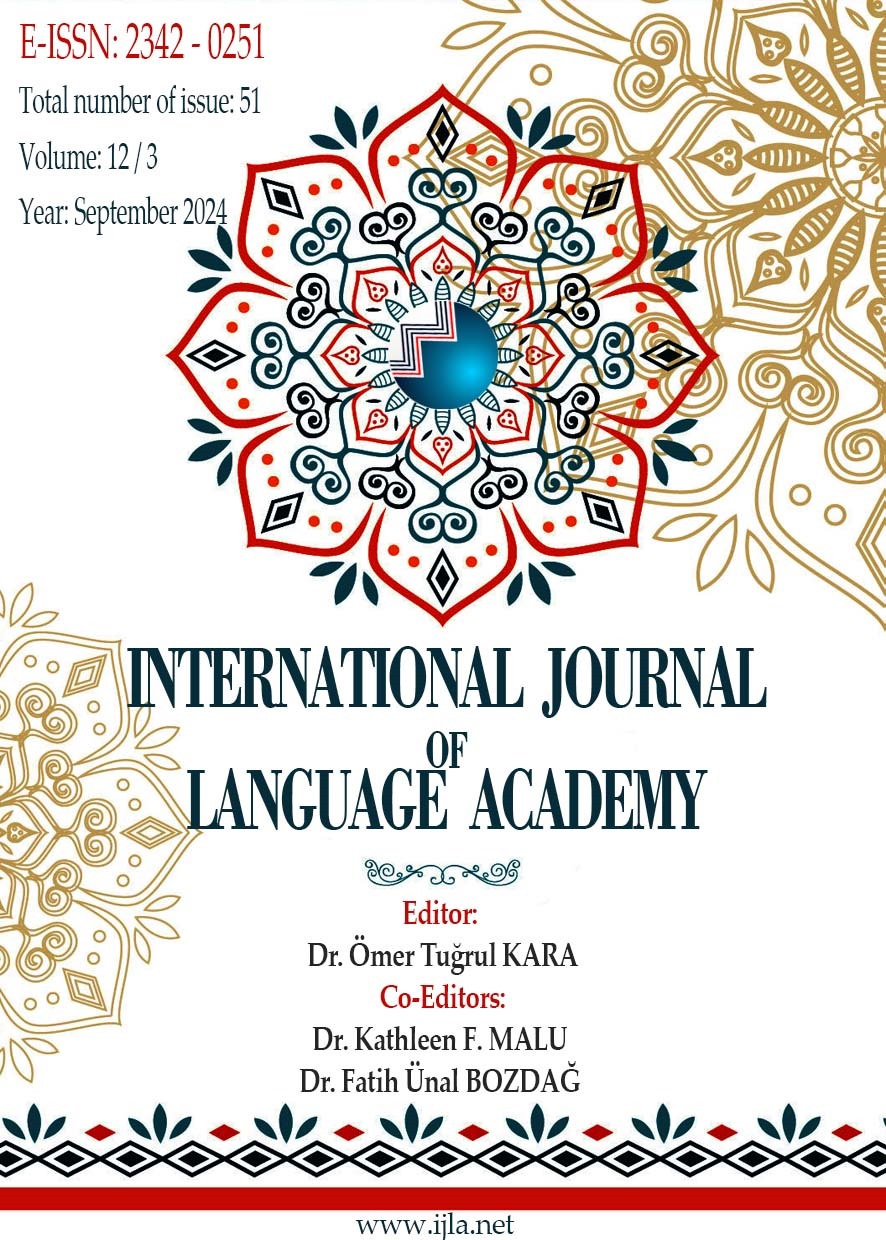Author :
Abstract
Motivasyon, gerçekleştirilen araştırmalarla ortaya çıktığı üzere, bir davranışın tercih edilmesi ve bu tercihin istikrarlı bir şekilde sürdürülmesini destekleyen itici bir güçtür. Başarı, erişi gibi kavramlara paralel gelişim gösterir. Bu bağlamda herhangi bir becerinin gelişimini, o beceriye dair motivasyondan ayrı düşünmek zordur. Bu araştırma, Beklenti-Değer Teorisi’nin ilkelerine göre hazırlanmış yazma atölyelerinin öğrencilerin yazma motivasyonu ve yazma becerileri üzerine etkisini gözlemlemek amacıyla gerçekleştirilmiştir. Nitel bir bakış açısıyla yürütülen bu çalışmada eylem araştırması deseni kullanılmıştır. Öğrencilerin yazma motivasyonu düzeyleri ve yazma becerilerinin niteliğini geliştirmek amacıyla tasarlanan on dört haftalık eylem planı Beklenti-Değer Teorisi’nin ilkelerine göre düzenlenmiş ve uygulanmıştır. Öğrencilerin yazma motivasyonu düzeylerindeki değişim, uygulama öncesi ve sonrasında öğrencilerle gerçekleştirilen yarı yapılandırılmış görüşmelerden elde edilen bulgular, yapılan gözlemler ve incelenen dokümanlar aracılığıyla betimlenmeye çalışılmıştır. Bu kaynaklardan elde edilen verilerin betimsel analizi MAXQDA programıyla tamamlanmış; yapılan analizde 4 tema, 16 kategori ve 12 alt kategori belirlenmiştir. Öğrencilerin yazma becerilerinin düzeyindeki değişim ise Yazılı Anlatım Değerlendirme Formu aracılığıyla yapılan incelemeler sonrasında ifade edilmiştir. Araştırma sonuçları öğrencilerin yazma motivasyonu düzeylerinin ve yazma becerilerinin niteliğinin olumlu bir gelişim gösterdiğini ortaya koymaktadır. Beklenti-Değer Teorisi temelli yazma öğretimi aracılığıyla kuramın başarı beklentisi, öz-yeterlilik, görev değeri ve kaygı boyutlarında olumlu yönde değişim sağlanmıştır. Yazılı Anlatım Değerlendirme Formu bulgularına göre ise öğrencilerin uygulama öncesi ve sonrasındaki toplam puanları arasındaki fark yazma becerilerinin biçim, dil ve anlatım ile imla ve noktalama açısından geliştiğini göstermektedir.
Keywords
Abstract
As revealed by research, motivation is a driving force that supports the preference for a behavior and the consistent maintenance of this preference. It develops in parallel with concepts such as success and achievement. In this context, it isn't easy to consider the development of any skill apart from the motivation for that skill. This study was developed to observe the effect of writing workshops designed around the principles of Expectancy-Value Theory on students’ writing skills and motivation to write. The study was conducted from a qualitative perspective and used action research design. The 14-week action research, designed to improve students’ levels of motivation to write and the quality of their writing skills, was written and applied in line with the principles of the Expectancy-Value Theory. The researchers attempted to describe the change in students’ levels of motivation to write by using the findings obtained from semi-structured interviews held with the students before and after the implementation, making observations, and examining documents. The descriptive analysis of the data obtained from these sources was completed with the MAXQDA program; 4 themes, 16 categories, and 12 subcategories were identified in the analysis. The change in the level of students’ writing skills was expressed following analyses made using the Written Expression Assessment Form. The results reveal that students' writing motivation levels and the quality of their writing skills improved. Teaching writing by applying the Expectancy-Value Theory resulted in a positive change in the expectancy for success, self-efficacy, task value, and anxiety aspects of the theory. The difference in the students’ total scores before and after implementation obtained using this form shows that their writing skills had improved in terms of format, language, expression, spelling, and punctuation.





